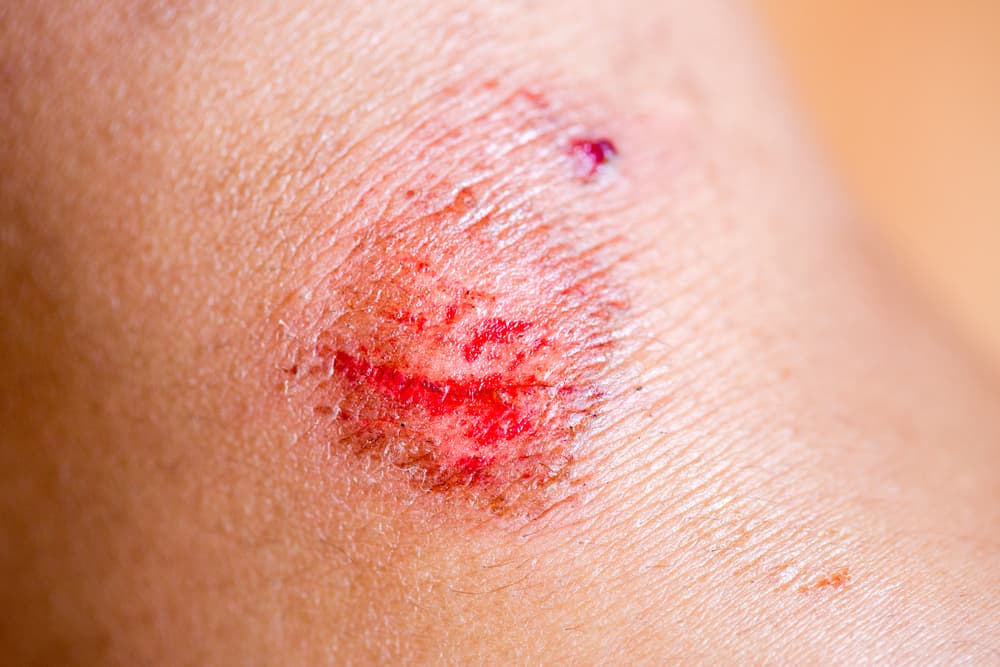Contents:
- Medical Video: How do video games affect behavior?
- 1. Aggressiveness and violence
- 2. Sex
- 3. Use of prohibited substances
- 4. Learning achievement
- 5. Obesity and eating disorders
- Positive media effects on children
- What can parents do?
Medical Video: How do video games affect behavior?
Radio, television (TV), video games, and other gadgets that can access the internet now play an important role in the lives of children. The various media above have been proven to have positive and negative effects on children, both in the aspects of intelligence, emotions, and behavior. Children spend almost 7 hours a day using media. Research conducted by Strasburger et al in 2005 showed that a total of 2/3 children in the world had access to TV, as many as 1/2 of the children were familiar with DVD players or game consoles, and 1/3 of the children had computers, tablets, or Internet access.
At present, children are very easy to get access to information and entertainment media. About 93% of children aged 12-17 years already understand the internet and 71% of them already have smart phones. The bad influence of media on children's lives is not only limited to disrupting learning activities or just sleeping time, but also affects children's attitudes and behavior.
According to sociology theory, children often learn and imitate what they see on the screen, especially if the actions they see are considered realistic and can be done. Parents can limit children's access to media, but sometimes it can happen "third-person effect", Where teenagers or parents assume that the adverse effects of the media can affect everyone except themselves or their children.
What are the bad effects that might occur if the child is left exposed to the mass media without supervision?
1. Aggressiveness and violence
At the age of 18, most teenagers have watched around 200,000 scenes on TV. Other research shows that 90% of games aimed at children actually contain violence, this can result in children imitating the violent scenes he witnessed. The relationship between violence in the media and the aggressive nature of children is almost as strong as the relationship between smoking and lung cancer.
2. Sex
The effect of exposure to sexual content in the media can cause curious children and eventually fall into poronography. In children aged 10-17, almost half have watched pornographic content, intentionally or unintentionally. This resulted in an increase in sexual harassment committed by young men, and the permissive nature of young women regarding sexual matters.
3. Use of prohibited substances
About 70% of films made in America contain scenes of smoking, drinking alcohol, or drug use. The above scenes are also rarely related to health effects that can arise, so that children or adolescents consider this to not endanger their health, as a result some children and adolescents may imitate this action.
4. Learning achievement
Children who regularly watch TV since they are 1-2 years old can increase their risk of getting ADD (attention deficit disorder). The presence of TVs in children's rooms is also proven to significantly reduce children's learning performance.
5. Obesity and eating disorders
Various studies show that the media play a role in increasing the number of obese children, due to advertisements junk food which can change a child's diet, and eating habits while watching which can increase the number of snacks eaten by children. The media also plays a role in dictating teenagers about how the ideal body shape, especially in women, so eating disorders can arise such as bulimia and anorexia.
Positive media effects on children
The media does not fully have a negative impact on children and adolescents, using the right media can actually have a great positive effect. Various social and health messages have proven to be more effective when delivered at the event prime time TV, like when Rachel in the Friends TV series told Ross that she was pregnant even though they were related to using condoms, this episode raised awareness among US people that condoms did not prevent pregnancy and increased the number of consultations on contraceptive use in the US. The same effect also occurs when episodes of the TV series Grey’s Anatomy discuss HIV and pregnancy, and many other examples.
What can parents do?
AAP (The American Academy of Pediatrics) provide some recommendations on how to use media that is safe for children:
- Limit the use of TV or computer to children over 2 years as much as 1-2 hours / day.
- Children under 2 years old should not be allowed to use TV, computers, or play mobile games.
- Avoid installing TV, video games, or personal computers in children's rooms.
- Accompany the child while watching TV, and discuss with the child about the content of the program being watched.
- Pay attention to the ratings of the programs watched, make sure the children watch programs that are suitable for their age.
- Turn off the TV if no one is watching or at mealtime.
READ ALSO:
- Raising a child under the care of a gadget, what's the impact?
- Too Long a Computer Makes You Vulnerable to SPK
- Watching TV Too Often Turns Out Not Damaging Your Child's Eyes












